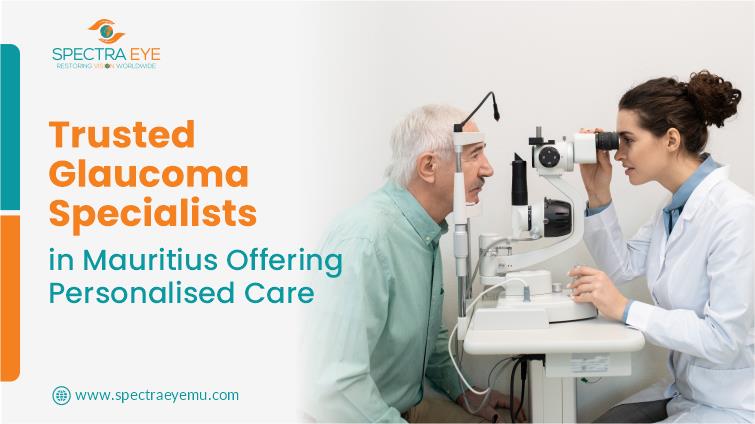
How Eye Health Is Linked to Brain and Mental Health
Your vision affects your mind too! Protect your eye & brain health with expert care at Spectra Eye Hospital, Mauritius. Book a check-up today!
The Eye-Brain Connection: More Than Meets the Eye
The retina at the back of your eye is actually part of your brain...
The retina contains neurons and is connected to the brain via the optic nerve. This allows the brain to interpret visual information. Visual signals are processed in the visual cortex of the brain, where light, movement, shape, and depth are analyzed. However, certain eye diseases like glaucoma, macular degeneration, and diabetic retinopathy can disrupt this connection, leading to cognitive difficulties.
In simpler terms, healthy eyes directly support healthy brain function.
1. Poor Vision and Cognitive Decline
Several studies show that vision impairment in older adults increases the risk of cognitive decline, dementia, and Alzheimer’s disease. This is because:
- Vision loss limits mobility, reducing mental stimulation.
- It affects memory and attention, which are vital cognitive functions.
- Social isolation due to vision problems accelerates mental deterioration.
Key takeaway: Regular eye exams can help detect early signs of neurological issues, even before other symptoms manifest.
2. Eye Diseases as Warning Signs of Brain Disorders
Certain eye conditions can indicate underlying brain disorders. For example:
- Optic Neuritis: Inflammation of the optic nerve, often a sign of multiple sclerosis.
- Diabetic Retinopathy: Long-term damage from diabetes, increasing the risk of cognitive decline.
- Retinal Changes: Changes in retinal blood vessels may signal strokes or neurodegenerative conditions.
Eye specialists can sometimes detect signs of broader health issues, including those affecting the brain.
3. Visual Processing and Mental Health
Mental health conditions such as depression, anxiety, and schizophrenia are often linked to visual processing changes:
- Depressed individuals may struggle with contrast sensitivity and focusing.
- Anxiety may cause visual disturbances like blurriness or tunnel vision.
- Schizophrenia is associated with difficulties in processing complex visual information.
The visual system is part of the brain's sensory network. Any disruptions, whether neurological or psychological, can impact how we interpret visual stimuli.
4. Eye Strain and Mental Exhaustion
In our screen-heavy lives, digital eye strain (also known as computer vision syndrome) is becoming increasingly common. It causes:
- Headaches
- Difficulty concentrating
- Mood changes
- Sleep disruption due to blue light exposure
Tip: Follow the 20-20-20 rule, use proper lighting, and use blue light filters to reduce digital eye and mental fatigue.
5. Vision Loss and Emotional Health
Losing vision, whether partially or completely, has significant emotional consequences:
- Loss of independence
- Social withdrawal
- Reduced confidence
- Increased risk of depression and anxiety
Emotional Effects of Vision Loss
Vision loss can affect different age groups differently:
- Children may experience learning difficulties or social withdrawal.
- Adults may face frustration, loss of productivity, and fear about the future.
- Elderly individuals are at a higher risk of depression and cognitive decline.
Take care of your vision—it’s an important part of your emotional and mental well-being.
6. How to Support Both Eye and Brain Health
Here are some tips for nurturing both your vision and brain health:
- Eat a Nutrient-Rich Diet: Foods rich in antioxidants, omega-3 fatty acids, and vitamin A support both eye and brain function.
- Stay Active: Physical activity increases blood flow to both the brain and eyes.
- Get Regular Eye Exams: These can detect early signs of systemic diseases, including neurological conditions.
- Manage Chronic Conditions: Control diabetes, hypertension, and cholesterol to protect both eyes and brain.
- Limit Screen Time: Practice good eye hygiene and take regular breaks.
When to See a Doctor
- If you notice sudden or frequent blurry vision.
- If you experience visual hallucinations or severe headaches with visual changes.
- If you have eye pain or pressure, these could be signs of underlying brain or mental health issues.
Final Thoughts
Your eyes are much more than just tools for seeing. They are closely linked to your brain and emotions. Protecting your vision is an important step toward preserving cognitive function and emotional stability. Get regular eye check-ups at Spectra Eye Hospital in Mauritius for better mental and physical well-being.



